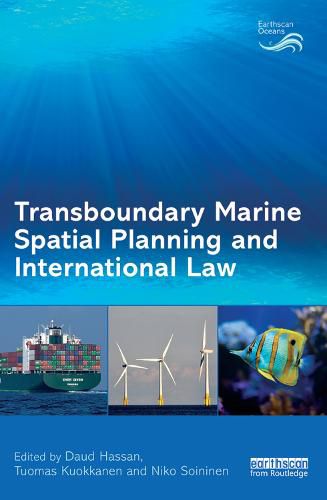Readings Newsletter
Become a Readings Member to make your shopping experience even easier.
Sign in or sign up for free!
You’re not far away from qualifying for FREE standard shipping within Australia
You’ve qualified for FREE standard shipping within Australia
The cart is loading…






Marine Spatial Planning (MSP) is an integrated and comprehensive approach to ocean governance and is used to establish a rational use of marine space and reconcile conflicting interests of its users. MSP allows both a high level of environmental protection and a wide range of human activities and emphasizes coordinated networks of national, regional and global institutions.
This book focuses on the framework of international law behind MSP and especially on the transboundary aspects of MSP. It first sets out a general framework for transboundary MSP and then moves on to compare and assess differences and similarities between different regions. Specific detailed case studies include the EU with the focus on the Baltic Sea and North Sea, the Bay of Bengal and Great Barrier Reef in Australia. The authors examine the national and regional significance of MSP from an integrated and sustainable ocean governance point of view. They also show how transboundary MSP can create opportunities and positive initiatives for cross-border cooperation and contribute to the effective protection of the regional marine environment.
$9.00 standard shipping within Australia
FREE standard shipping within Australia for orders over $100.00
Express & International shipping calculated at checkout
Marine Spatial Planning (MSP) is an integrated and comprehensive approach to ocean governance and is used to establish a rational use of marine space and reconcile conflicting interests of its users. MSP allows both a high level of environmental protection and a wide range of human activities and emphasizes coordinated networks of national, regional and global institutions.
This book focuses on the framework of international law behind MSP and especially on the transboundary aspects of MSP. It first sets out a general framework for transboundary MSP and then moves on to compare and assess differences and similarities between different regions. Specific detailed case studies include the EU with the focus on the Baltic Sea and North Sea, the Bay of Bengal and Great Barrier Reef in Australia. The authors examine the national and regional significance of MSP from an integrated and sustainable ocean governance point of view. They also show how transboundary MSP can create opportunities and positive initiatives for cross-border cooperation and contribute to the effective protection of the regional marine environment.